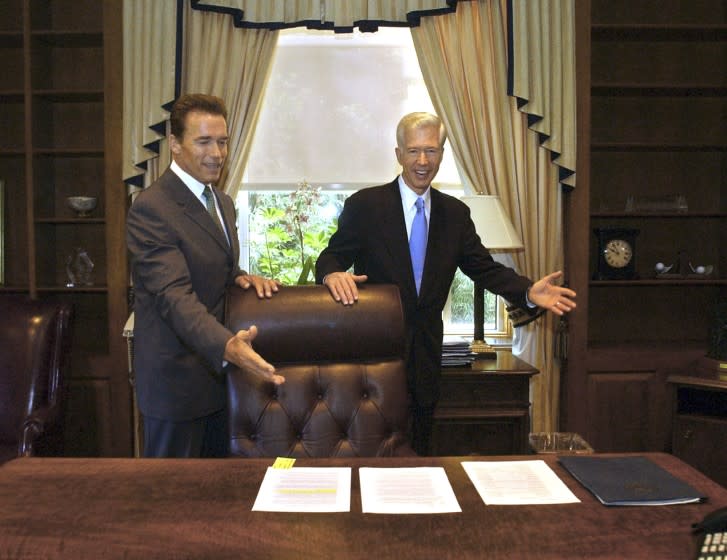Letters to the Editor: Yes, Gov. Gray Davis' recall in 2003 was undemocratic. Here's how to fix it

- Oops!Something went wrong.Please try again later.
- Oops!Something went wrong.Please try again later.
To the editor: Yes, a governor recalled by a bare majority of votes can be replaced by someone with far fewer votes. But even if the replacement wins more votes, the result can "undermine rather than reflect the will of the people," to borrow a phrase from your editorial. ("California's recall process needs to be fixed to prevent a repeat fiasco," editorial, Sept. 16)
That happened in 2003. Gov. Gray Davis lost a recall vote 55.4% to 44.7%, and Arnold Schwarzenegger succeeded him with 48.6% of the replacement vote. But many voters voted against the recall and then voted for Schwarzenegger, presumably their second choice, in case the recall succeeded.
If just 4% of voters did that, Schwarzenegger was actually the first choice of at most 44.6%. The popular choice in 2003 was likely Davis.
Currently, gubernatorial recalls tilt the field of play so that an incumbent needs a majority but a challenger does not even need a plurality. The Legislature can solve the problem by amending the election code to abolish replacement elections.
California's Constitution does not require replacement elections. It allows them "if appropriate" but does not say when that is. It does say, "The lieutenant governor shall become governor when a vacancy occurs in the office of governor," no replacement vote needed.
Thomas Schwartz, Studio City
The writer is a professor emeritus of political science at UCLA.
This story originally appeared in Los Angeles Times.

